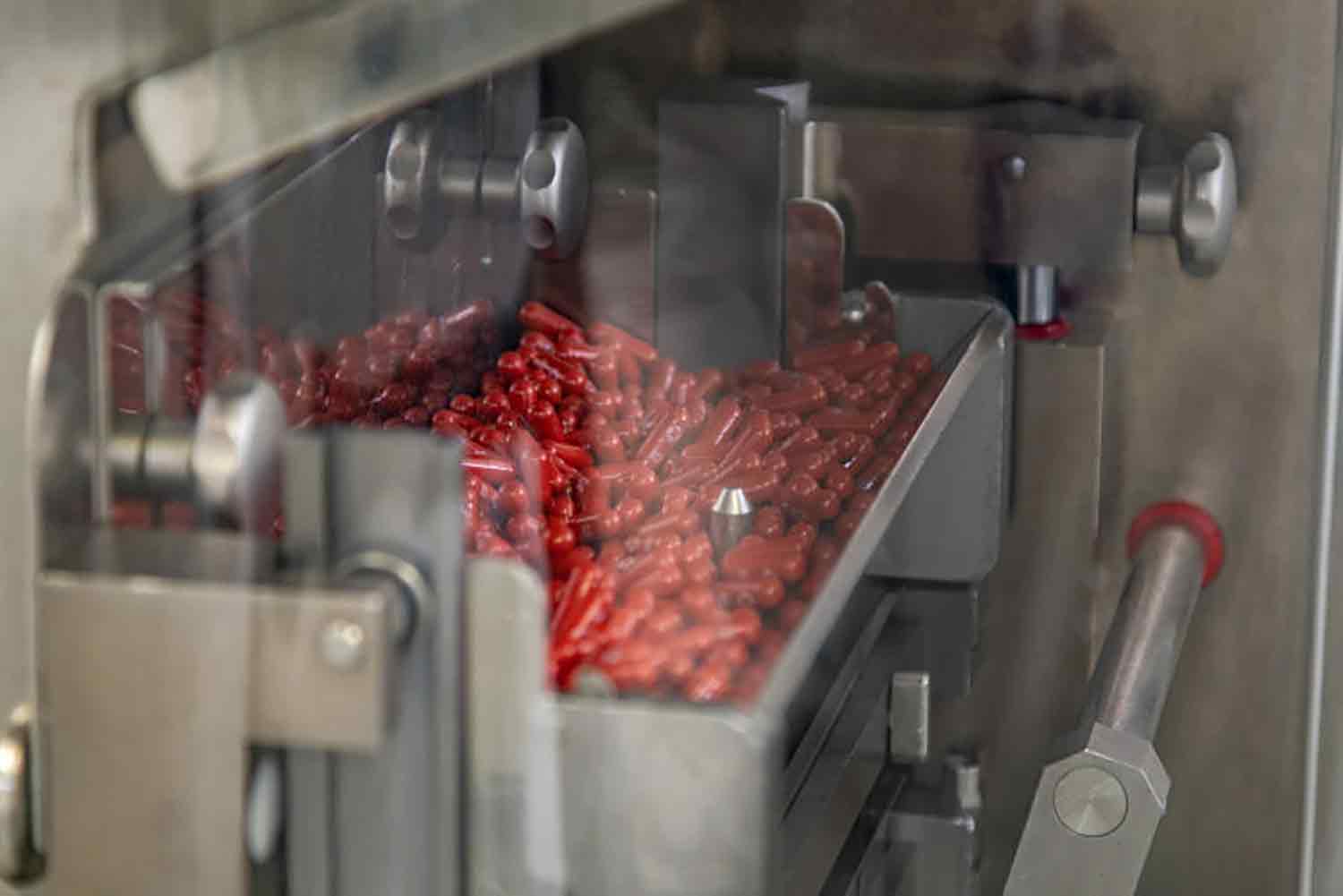
Merck has granted a royalty-free licence for its promising COVID-19 pill to a United Nations-backed nonprofit in a deal that would allow the drug to be manufactured and sold cheaply in the poorest nations, where vaccines for the coronavirus are in devastatingly short supply.
The agreement with the Medicines Patent Pool, an organisation that works to make medical treatment and technologies globally accessible, will allow companies in 105 countries, mostly in Africa and Asia, to sublicense the formulation for the antiviral pill, called molnupiravir, and begin making it.
Merck reported this month that the drug halved the rate of hospitalisations and deaths in high-risk COVID-19 patients who took it soon after infection in a large clinical trial. Affluent nations, including the United States, have rushed to negotiate deals to buy the drug, tying up large portions of the supply even before it has been approved by regulators and raising concerns that poor countries could be shut out of access to the medicine, much as they have been for vaccines.
Generic drugmakers in developing countries are expected to market the drug for as little as US$20 per treatment (a 5-day course), compared to the $712 per course that the US government has agreed to pay for its initial purchase.
Treatment-access advocates welcomed the new deal, which was announced Wednesday morning, calling it an unusual step for a major Western pharmaceutical company.
“The Merck licence is a very good and meaningful protection for people living in countries where more than half of the world’s population lives,” said James Love, who leads Knowledge Ecology International, a nonprofit research organisation.
“The licence isn’t perfect,” he added, “they never are, but it’s going to be very helpful if the drugs work as well as the hype and are safe enough. It will make a difference.”
Merck had already taken the step of licensing eight large Indian drugmakers to produce generic versions of molnupiravir, pending authorisation. But the company feared that production in just one region would not be enough to ensure rapid access to the drug across the developing world, said Jenelle Krishnamoorthy, Merck’s vice president for global policy.
So Merck also engaged in talks with the patent pool, which has deep experience in working with a network of global drugmakers that can meet high-quality standards, including those required for World Health Organization prequalification, she said.
“We knew we had to work faster, we had to do things we hadn’t done before, we had be more efficient,” Krishnamoorthy said.
Merck has promised assistance with technology transfer to any generic licensee that requires help to make the drug. That offer, and the company’s quick moves to make its product available in the developing world, stand in contrast to the ongoing refusal of Pfizer and Moderna to do technology transfer to potential mRNA vaccine producers in Africa, Asia or Latin America. The company is the rare pharmaceutical brand to be receiving largely positive media coverage these days.
During the long fight for affordably priced drugs to treat HIV in the early 2000s, Merck was a frequent target of activist ire, and the legacy of that battle clearly informs the company’s decision-making about access today. The processes that Merck is using for molnupiravir — including voluntary licences to Indian generic makers, and a handing-off of the market where governments or consumers won’t be able to pay much for the drug — are also standard practices in the drug industry today, and date from the struggle for accessible medications for HIV.
Charles Gore, director of the Medicines Patent Pool, said the new agreement with Merck is the first transparent public health license for a COVID-19 medicine. “Really importantly, it is for something that could be used outside of hospitals, and which is potentially going to be very cheap,” he said. “This is hopefully going to make things a lot easier in terms of keeping people out of hospital and stopping people dying in low- and middle-income countries.”
Gore said that more than 50 companies, from all regions of the developing world, have already approached the organisation about obtaining a sublicense.
The agreement with Merck, Gore said, is also critically important as a precedent. “I hope this will start a landslide of people coming to the Medicines Patent Pool, wanting to do licensing, because there’s no question that access has been the problem,” he said. “From a scientific point of view, industry have done a really brilliant job — firstly, providing the vaccines, and now providing treatments. But the access side of it has let the whole thing down.”
Pfizer also has a Covid-19 antiviral pill in late-stage trials, and Gore said the company is in talks with the patent pool.
Molnupiravir was developed by Merck and Ridgeback Biotherapeutics of Miami, based on a molecule first studied at Emory University in Atlanta. All three organisations are party to this deal, which will not require a fee from any sublicensing company.
Merck has submitted its clinical trial data to the Food and Drug Administration seeking emergency-use authorisation; a decision could come in early December. Regulatory agencies in other nations that produce a version of molnupiravir will need to evaluate it. Some drug manufacturers will likely seek WHO prequalification for their versions, so that they can bypass the country-by-country regulatory steps.